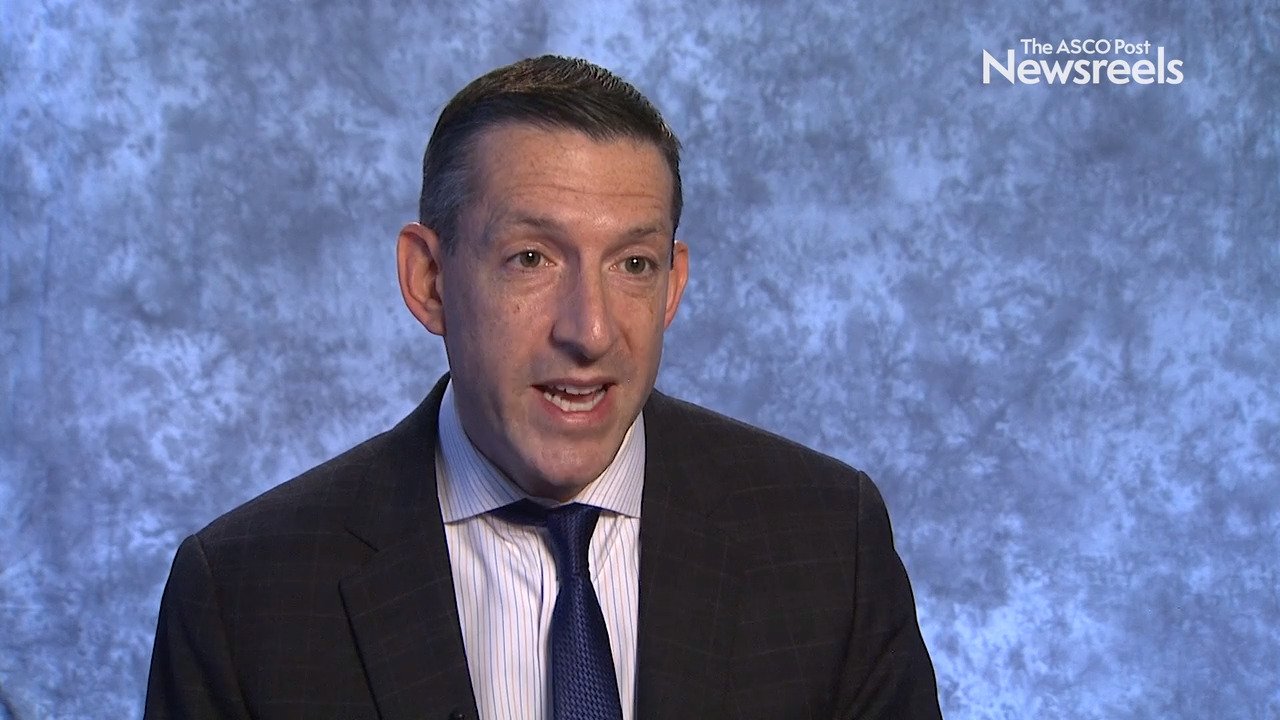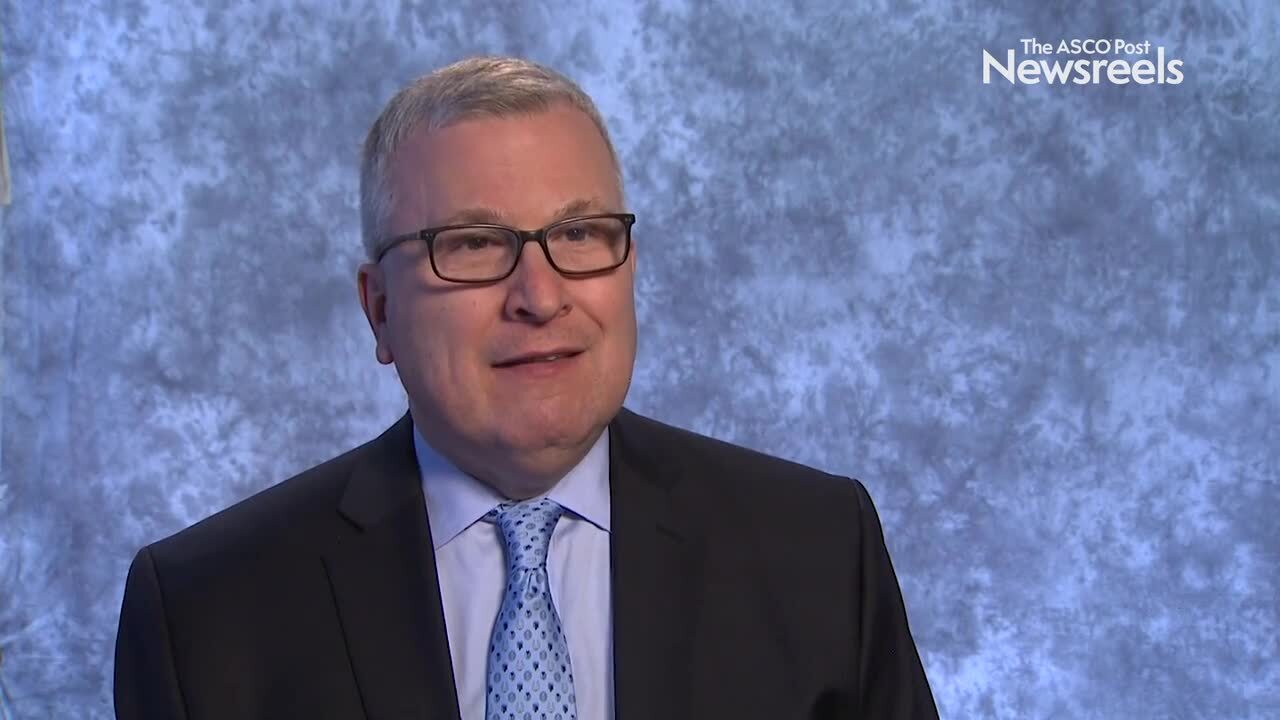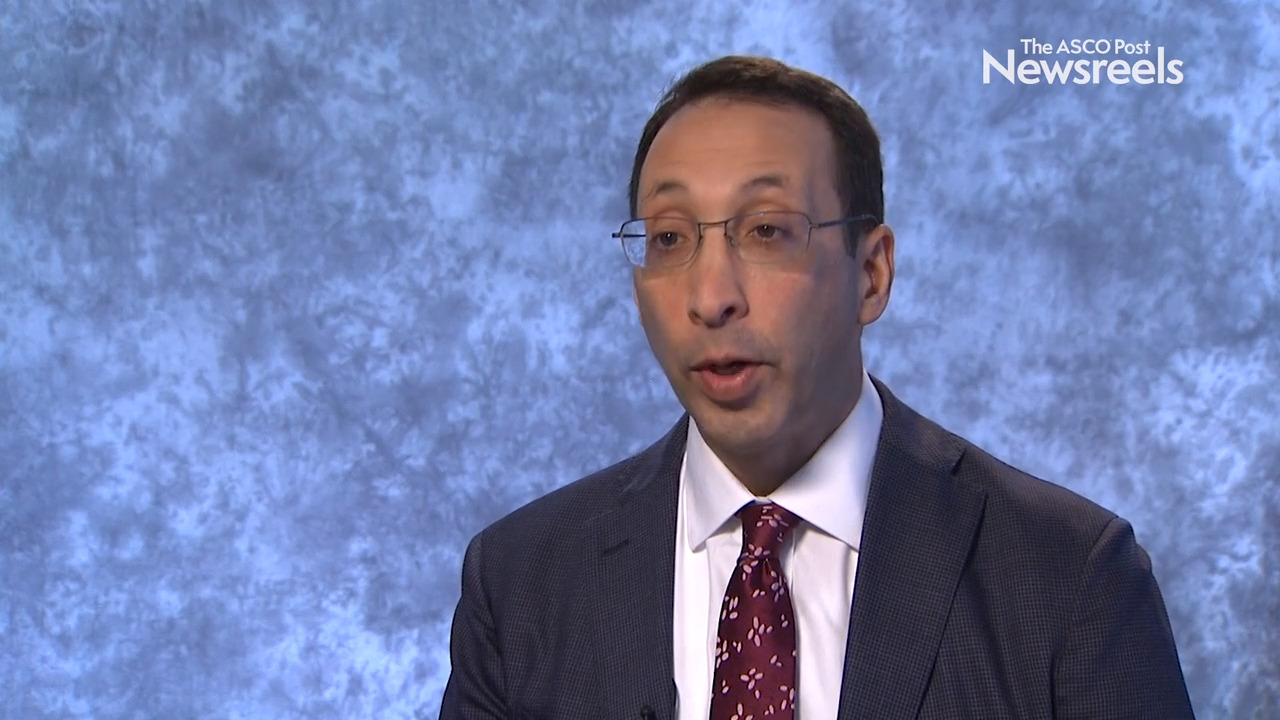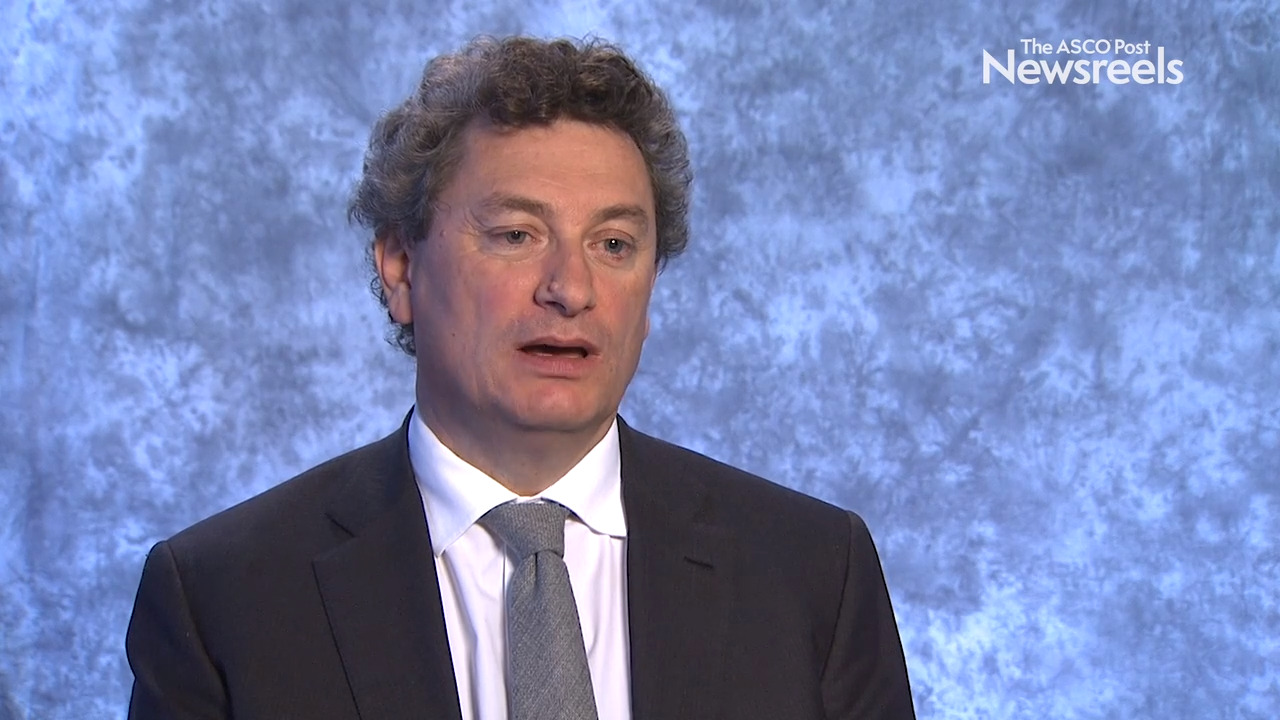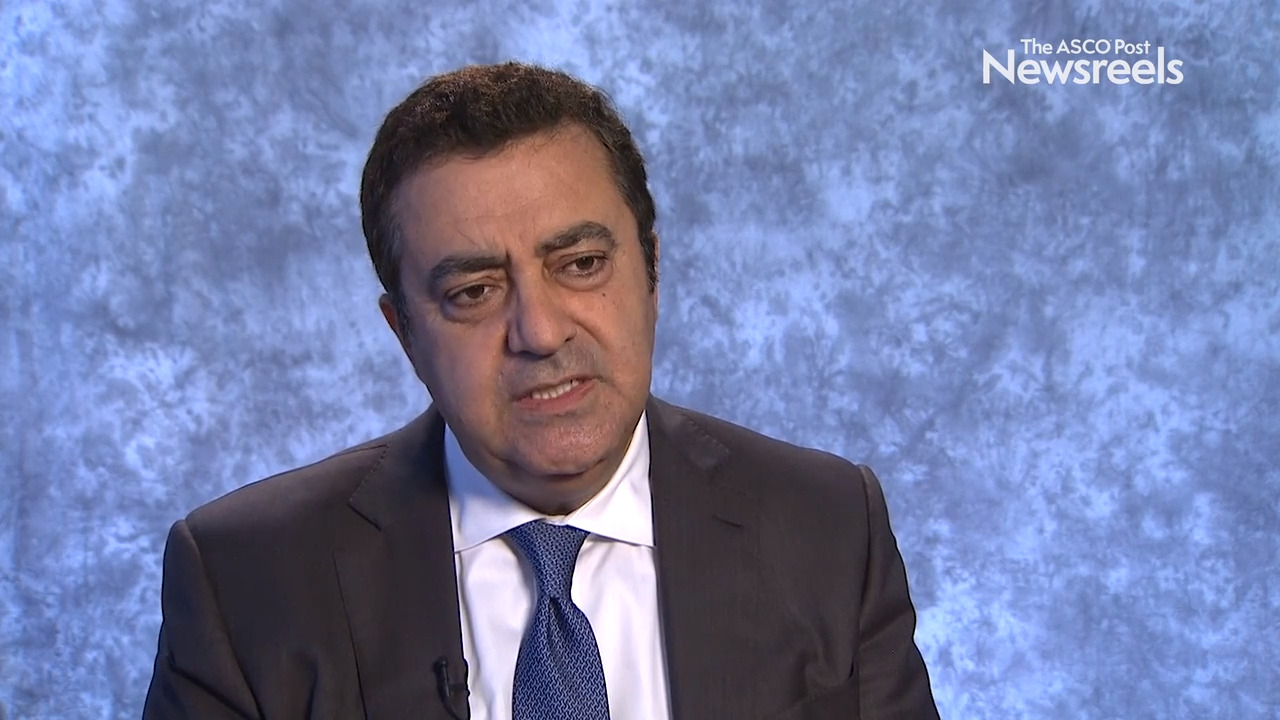Alexander B. Pine, MD, PhD, on Practices and Preferences for Anticoagulant Therapy in Treating VTE
2018 ASH Annual Meeting & Exposition
Alexander B. Pine, MD, PhD, of Yale School of Medicine, discusses a survey gathering data on health-care providers’ practices and preferences in using direct oral anticoagulant therapy to treat venous thromboembolism.
Readers of The ASCO Post are invited to participate in this research by completing the survey, entitled: “Perspectives and Practices in Utilization of Direct Oral Anticoagulants in Patients With Cancer-Associated Venous Thromboembolism.” The survey takes approximately 3 to 4 minutes to complete and can be taken on a mobile device or a computer. The survey link is https://yalesurvey.ca1.qualtrics.com/jfe/form/SV_3l0HxrreWZhVtBz.
Mikkael A. Sekeres, MD, of the Cleveland Clinic, discusses phase III study findings on luspatercept to treat anemia in patients with very low-, low-, or intermediate-risk myelodysplastic syndromes with ring sideroblasts who require red blood cell transfusions (Abstract 1).
John P. Leonard, MD, of Weill Cornell Medicine/Cornell University, discusses phase III findings on lenalidomide plus rituximab vs rituximab plus placebo for people with relapsed or refractory indolent non-Hodgkin lymphoma (Abstract 445).
Steven M. Horwitz, MD, of Memorial Sloan Kettering Cancer Center, discusses phase IIa study findings on the novel SYK/JAK inhibitor cerdulatinib for relapsed/refractory peripheral T-cell lymphoma and cutaneous T-cell lymphoma (Abstract 1001).
Gilles A. Salles, MD, PhD, of Centre Hospitalier Lyon Sud, discusses trial findings on the monoclonal antibody MOR208 combined with lenalidomide in people with relapsed or refractory diffuse large B-cell lymphoma (Abstract 227).
Anas Younes, MD, of Memorial Sloan Kettering Cancer Center, discusses trial findings on ibrutinib plus rituximab, cyclophosphamide, doxorubicin, vincristine, and prednisone in people with previously untreated non–germinal center B-cell–like diffuse large B-cell lymphoma (Abstract 784).
